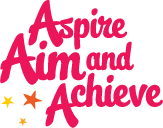Primary
On the Day
Looking after Visitors
Organise meeters and greeters to look after visitors and show them to the spectators’ area.
Supervising the Competitors
Ensure that there are enough teachers/teaching assistants to look after the competitors when they are not competing and to get them ready for events.
Organising and Directing the Activities
One person should oversee and lead all the activities, directing events, timings and people, at all times. Make sure all the participants and helpers are aware who this is.
Order of Events
The following activities are a suggested itinerary for the Olympic and Paralympic Event. You may wish to adapt the event to suit your school.
1. Opening Ceremony
- All the children, in their teams, will walk to their selected areas and sit down. Team mascots will lead each team out to a lively piece of music.
- The children will perform the Opening Ceremony dance (as prepared in PE dance activity Olympic Torch).
- The nominated child/children will bring in the torch (see the Celebrating the Olympics classroom activity).
- The selected child (or children) will say the oath, that was created in the Olympic and Paralympic Games classroom activity, on behalf of the athletes.
- The principal/special guest will declare the ‘Games’ open.
2. Sports Events
All participants complete the sports events.
Include the events from the Faster, Higher, Stronger unit of work. Organise the children into five teams of five. Remind them that their scores count towards the total score of their team for each event. There may be an individual winner for each event, but placings also score points for their teams. The team with the highest combined total (from each team within each year group) is the winner.
Remind the children that they can also win medals for individually displaying the values of the Olympic and Paralympic Games. See the What are your Values classroom activity for more information. The team with the highest combined total (from each team in the year group) is the winner.
Alternatively, you may decide not to award any points at all and encourage participation, teamwork and fun. Each event will last two minutes and points are scored for completed runs, throws, etc. Each child must take part in a specific number of events. Examples of events include:
- relay shuttle run - each person in the team takes turns to complete a shuttle run, in and out of three cones/hoops spread an even distance apart over an appropriate distance (10 m intervals approximately). Count and record the number of shuttle runs each participant completes in two minutes.
- relay race - count and record the number of runs each team completes over the two minutes.
- egg and spoon race/bean bag/quoit on head or under chin race - count the number of completed runs in two minutes.
- small football throw/tennis ball or foam javelin throw - measure the distance thrown and record the best attempts over the two minutes. Record the distance by awarding one point for an object thrown further than the first marker (5 m), two points for further than next marker (7 m) and three points for further than the 10 m marker, rather than individually measuring each throw.
- bean bag throw - award points for each bean bag that lands in each hoop in the two minutes.
- high jump and/or standing broad jump - record the best jump during the two minutes (three jumps per person).
- hurdles relay - count the number of runs each team completes over three small hurdles over two minutes.
- obstacle course - each member of the group works together to complete the course and the fastest team wins.
Please note: Safety of competitors is paramount at all times: ensure there is adequate space for the throwing events.
You may wish to extend the event to include other games and organise mini tournaments, including some of the Olympic and Paralympic sports, for example:
- Badminton;
- Netball;
- Hockey;
- Table tennis;
- Football; or
- Boccia.
The children should showcase the new games they devised earlier in the games unit.
3. Medals and Closing Ceremony
No Olympic Games is complete without awarding medals and a closing ceremony. When medals have been handed out, give the children a chance to parade around again, this time proudly displaying their medals. The closing ceremony may include a dance (see Sports Dance). Ask one child to hand the torch over to another year group and ask the principal or a special guest to officially close the games.

